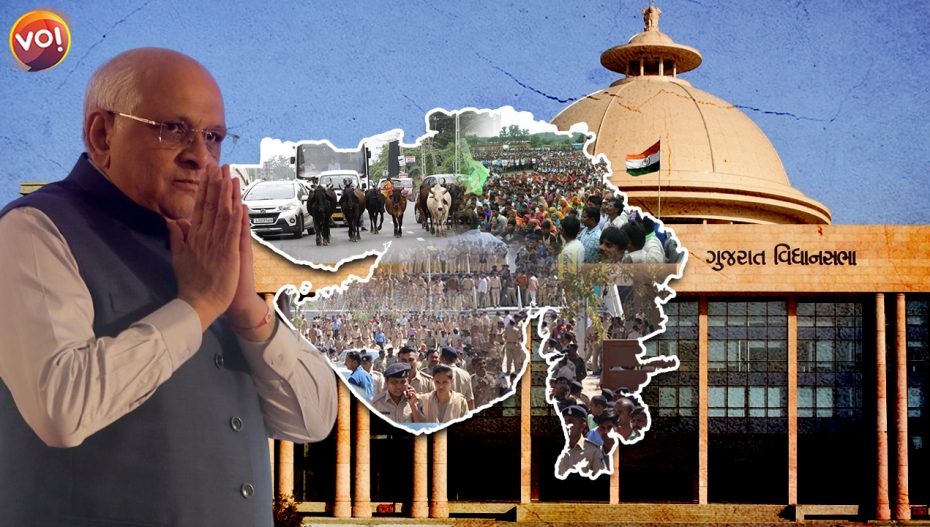Strained eyebrows, anxious faces, frenetic activity. No, this isn’t the Congress office in Gujarat, it is about the BJP Government in the State. One after the other, the ostensibly invincible party that rules Gujarat for three decades has been either rolling back its decisions or scrapping them.
The panic is palpable. The latest in the series is the Par-Tapi-Narmada Riverlink Project pompously announced by Union Finance Minister Nirmala Sitharaman in her 2022-23 budget speech, which has been scrapped in the face of a pitched agitation by tribals of South Gujarat.
The protests against the inter-state project involving Gujarat, Maharashtra and Madhya Pradesh started during the State budget session. Led by Anant Patel, Congress MLA from Vansda in South Gujarat, the demonstrations that began in the affected tribal areas snowballed into a major agitation with huge protests even in the State Capital Gandhinagar.
The government first put the project on hold, but the protests continued alleging that it would be renewed after the Gujarat assembly elections in December. Eventually, the State Government announced that it had scrapped the project and insisted it had never given its consent to it. It is another matter that Congress has not let go saying the government’s intentions are suspect.
Another example is stringent legislation against owners of stray cattle, which was moved and approved in the State Assembly after nearly a day-long debate that continued well until midnight.
The legislation was introduced in the assembly since the government had committed to it in the Gujarat High Court following a petition about the menace of stray cattle. Among the several contentious provisions was that anyone wishing to rear cattle would need to take the district collector’s permission. Another was that the owners of stray cattle, which are not geo-tagged, would be fined Rs 50,000 whereas the value of such stray animals couldn’t be even half this amount.
The government was forced to roll back the entire legislation following huge protests from the maldhari community (cattle-rearers). Asked about its commitment to the high court, the government told media persons that the local municipal corporations had adequate powers to check the stray cattle menace and it would be implemented stringently.
In an unusual protest that erupted across Gujarat, police staff and their families took to the streets demanding that their revised pay grades that have been hanging fire for a long time be implemented forthwith.
Hundreds of families of police constables not only staged demonstrations for days on end but also undertook hunger fast to highlight their demands. Scenes of policemen dispersing families of their colleagues became quite common.
After ignoring them for long, the State Government was forced to constitute a committee to cool off tempers among the police families.
It is often that junior government resident doctors go on strike, but this time even seniors up to the level of deans and professors of medical colleges went on strike to press for the implementation of the 7th Pay Commission for them. The strike disrupted health services at state-run hospitals across the State and eventually forced the government to concede their demands.
The 7th Pay Commission recommendations were immediately implemented with retrospective effect.
Similarly, the government was forced to agree to the demands by vidya sahayaks (temporary teachers) to increase their remuneration and consider taking them on the government’s rolls since their job profile is equivalent to the regular government teachers.
















